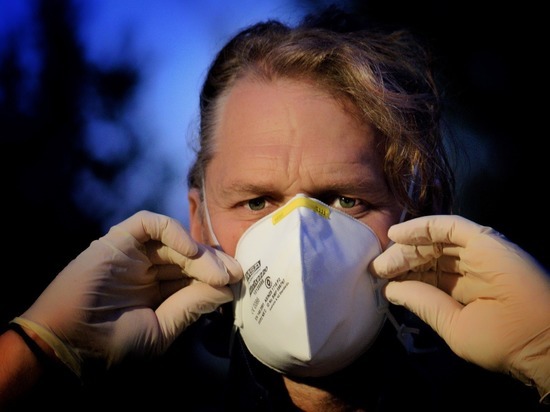
Speaking to reporters after a conference with the prime ministers of the federal states, Federal Chancellor Angela Merkel, first of all, was optimistic that the number of new infections detected had decreased. The radical measures introduced in Germany are bearing fruit. One can see “the prospect of normalizing daily life and returning to life without the restrictions associated with the pandemic.”
At the same time, the politician said that a new, more infectious strain of coronavirus was found in Germany. So that he does not destroy all the successes achieved, “we must act now,” the Chancellor stressed. What measures were agreed by the politicians during the conference.
The strict quarantine regime will be extended until February 14. Social contacts should be minimized as much as possible. However, the tightening that Angela Merkel wanted will not happen. Members of one family are allowed to meet with one person from another household. But it should not be the same person, as the State Chancellery planned. Children also don’t have to choose one long-term friend to play with. Schools, kindergartens, shops, entertainment and cultural facilities remain closed. Stricter requirements for masks on public transport and in shops are being introduced, and working from home will become more possible.
Schools and kindergartens
Schools and kindergartens will not open until February 15th. This issue turned out to be one of the most acutely discussed. All conference participants, according to Merkel, understood that the closure of schools is a “colossal limitation.” However, the evidence cited by experts that the mutated form of the virus is increasingly spreading among children and adolescents became the reason for the decision to extend the closure of children’s educational institutions for another three weeks. As soon as schoolchildren are allowed to return to school, even in shifts, it will be possible to open kindergartens step by step.
The decision could not be made for so long because the Federal Chancellery demanded the introduction of distance learning in all states until mid-February, and the states insisted on extending the rules adopted in December. According to the regional authorities, each land has the right to decide for itself, depending on the situation, whether to return to full-time education or not. As a result, the decision remains in the hands of the provinces, but the implementation must be more “tough” than before. At the very least, there should be exceptions for graduation classes so that students can prepare for exams.
The fact that decisions remain in the department of the federal states, stressed the Prime Minister of Baden-Württemberg Kretschmann, who announced that schools and kindergartens in Baden-Württemberg would gradually begin to open from February 1, if the epidemiological situation allows.
FFP2 masks
Another measure taken is the tightening of the mask regime. Residents of the country will have to wear medical masks in shops and on public transport. In nursing homes, staff are required to wear FFP2 masks. In Bavaria, the obligation to wear FFP2 masks in shops and transport has been in effect since 18 January.
Home Office
What many have been waiting for has come true. The country will introduce the right to work from a home office. Under the new regulation, employers should, whenever possible, “allow employees to work from home,” if the occupation allows it. In enterprises where the personal presence of an employee is mandatory, but there is no way to maintain a distance, wearing masks will be mandatory.
Public transport
Public transport will work unchanged. To reduce the number of passengers on buses and trains, more vehicles will run during peak hours. Moreover, as many people as possible should work from home.
Sport
The decision regarding sports remains unchanged. Amateur sports remain under lock and key.
Church services
Believers can go to churches, synagogues and mosques, as well as to meeting places of other religious communities, provided that the following rules are observed: it is necessary to maintain a minimum distance of 1.5 meters, chanting prayers together is prohibited, and medical masks should be worn even while sitting. The new regulation states that services and ceremonies where more than ten parishioners are expected to attend must be reported to the responsible regulatory body at least two working days in advance.
Germany says this:
Germany: Hard insulation extended until February 14
Germany and EU countries to discuss the introduction of vaccination cards and the introduction of privileges for those who have been vaccinated
Germany: drastic measures up to the closure of enterprises
Germany: how to find out within what limits you can move in your area